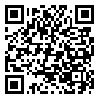BibTeX | RIS | EndNote | Medlars | ProCite | Reference Manager | RefWorks
Send citation to:
URL: http://journal.muq.ac.ir/article-1-242-en.html
2- Shiraz University
Abstract Background and Objectives: Type, intensity, and duration of exercise determines the effect of exercise on the immune system. This study aimed to determine the effect of different exercise intensities on cytokine response pattern in male football players. Methods: In this quasi-experimental study, 11 male football players of Jahrom University (mean height, 1.70±0.04m; weight, 64.42±6.44kg; age, 21.90±0.87 yr; body mass Index, 22.05±1.68kg/m 2 ) with at least 6 months of activity, were studied. In the first week, the participants ran one session at 65% of maximum heart rate and in the second week, one session at 80% of maximum heart rate for 30 minutes at running track. Blood samples were taken before and immediately after each training session. Data were analysed using dependent t-test and repeated measures ANOVA. The significance level was considered p<0.05. Results: Exercise at 65% of maximum heart rate had no significant effect on IFN-γ (p=0.60), IL-4 (p=0.14), and IFN-γ/IL-4 ratio (p=0.22). A session of exercise with 80% of maximum heart rate, had no significant effect on IL-4 (p=0.57) and IFN-γ/IL-4 ratio (p=0.38), whereas the level of IFN-γ significantly decreased (p=0.01). Conclusion: Based on the results of this study, the immune response changed with the intensity of the exercise, and exercise at 80% of maximum heart rate had a significant effect on the IFN-γ response compared to the exercise at 65% of maximum heart rate.
Received: 2016/02/13 | Accepted: 2016/02/20 | Published: 2016/02/20
| Rights and permissions | |
 |
This work is licensed under a Creative Commons Attribution-NonCommercial 4.0 International License. |







